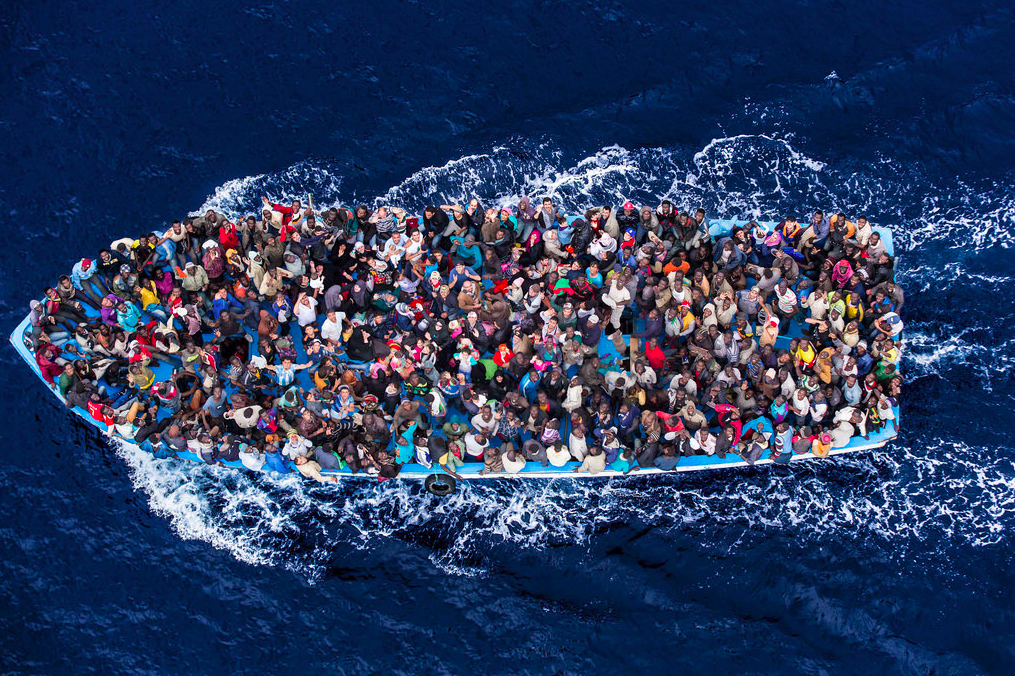This is the second part of a two part series on the economic benefits of accepting Syrian refugees. To read more see part 1.
The positive economic effect of Syrian refugees is already evident in Lebanon, Jordan, and Turkey. Since January 2012, Lebanon has registered 1.1 million Syrian refugees, a figure that dwarfs quotas put forward by Canada, the US, the EU, and Scandinavian countries and makes up a quarter of Lebanon’s population. Yet the Lebanese economy has been outperforming expectations and the World Bank says that the country is experiencing its highest growth rate since 2010. Refugees have become a vital source of demand for locally produced services and have driven Lebanese service exports up by 1.5 percent. Similarly, Turkey’s economy has been growing consistently and average wages for Turkish workers have increased, despite the country’s spending nearly 5.37 billion euros to provide registered refugees with free access to health care and education and build model refugee camps. Jordan, too, has experienced consistent economic growth despite absorbing 630,000 Syrian refugees, around 10 percent of its population. With an economy some 23 times greater than those of Lebanon, Jordan, and Turkey, the EU has the resources to absorb greater numbers of Syrian refugees without experiencing any significant economic turmoil.
Under Angela Merkel, Germany has become a leader in addressing the crisis, agreeing to accept more than 800,000 Syrian refugees or nearly 1% of the country’s total population. In comparison, France and the United Kingdom have agreed to accept 24,000 and 20,000 refugees respectively, which constitutes roughly 0.03% of each country’s total population. Pledging to accept 10,000 refugees each, Canada clocks in at about 0.02% of its total population, while the United States – with a whopping population of 321,700,000 people – has accepted 0.003% of its population. These figures look particularly small when viewed alongside countries like Lebanon, Turkey, and Jordan. Turkey has accepted 1.9 million Syrian refugees or 2.5% of its population, and Jordan has provided refuge to 9.25% of its 6.8 million people. Most strikingly, accepting 1.1 million Syrian refugees, Lebanon has taken in nearly a quarter of its entire population.
Countries like Germany have a particular economic incentive to welcome refugees. While Merkel should be applauded for her moral and humanitarian leadership, Germany’s generous refugee policy is a shrewd economic move designed in part to offset a rapidly ageing population and shrinking workforce. Germany has already lost nearly a quarter of its population to plunging birth rates, which are the lowest in the world. Its population is expected to shrink by 13.2 million people by 2060. As well Germany has one of the lowest unemployment rates in Europe at 6.2%. Many companies are struggling to find workers, with more than 37,000 trainee positions unfilled. Threatened by an impending demographic emergency and potential economic collapse, Germany sees an investment opportunity in the massive influx of young, educated Syrian refugees, despite the initial costs of resettlement. In 2014, Germany spent $2.7 billion caring for approximately 203,000 migrants, and the cost of accepting 800,000 refugees in 2015 is estimated to rise to $11 billion. However, with a GDP of $3.8 trillion, accepting Syrian refugees is a worthy economic investment for Germany to combat its looming demographic crisis.
 Not coincidentally, Germany has the most developed refugee settlement apparatus in the EU, boasting Labor Ministry integration and apprenticeship programs tailored to match able refugees with companies looking for workers. In contrast, governments that detain refugees and take the longest to process asylum-seekers rack up a hefty tab for taxpayers. For example, by some estimates, Australia’s practice of detaining refugees until their claims are processed costs the country over a billion dollars a year, forcing refugees to live off government benefits for one year or more. This, in turn, perpetuates the idea that refugees take advantage of government assistance and social services, and fuels public resentment of refugees as an unjust burden on taxpayers.
Not coincidentally, Germany has the most developed refugee settlement apparatus in the EU, boasting Labor Ministry integration and apprenticeship programs tailored to match able refugees with companies looking for workers. In contrast, governments that detain refugees and take the longest to process asylum-seekers rack up a hefty tab for taxpayers. For example, by some estimates, Australia’s practice of detaining refugees until their claims are processed costs the country over a billion dollars a year, forcing refugees to live off government benefits for one year or more. This, in turn, perpetuates the idea that refugees take advantage of government assistance and social services, and fuels public resentment of refugees as an unjust burden on taxpayers.
Most refugees are eager to gain employment and become financially independent. Given sufficient resources, the majority of refugees are able to integrate into host economies in a relatively short length of time. In Canada, for instance, approximately 60,000 ‘boat people’ from Southeast Asia were accepted between 1979 and 1981. According to a landmark study of their integration, within ten years, 86% of them were gainfully employed, healthy, and spoke English with some degree of proficiency. Further, they were less likely to use social services and more likely to have jobs than the average Canadian.
In the quest for employment and financial independence, however, refugees are often impeded by frustratingly lengthy and inefficient procedures. For instance, Gillian Zubizarreta, a settlement coordinator for the Halifax Refugee Clinic, cites difficulties obtaining work permits as a common barrier blocking refugees from obtaining gainful employment. Former Canadian Immigration Minister Ron Atkey similarly condemns inefficient refugee policy, calling for Canada to streamline its refugee process, provide Syrians with better access to visas, and put visa officers into the field to evaluate and process refugee applications more quickly. Under the current circumstances especially, developing effective refugee processing systems and resettlement programs will require adequate government attention and spending. To achieve full economic integration, it is crucial that governments develop and implement efficient systems for processing applications and resettling Syrian refugees.
Ultimately, public insistence that refugees are a drain on the economy is baseless and overwhelmingly refuted by several international case studies. In the long term, an influx of refugees actually proves to be a benefit to host economies and a worthwhile investment, with refugees becoming taxpayers and paying off the initial costs of resettlement within a few years of arrival. Moreover, the ability of refugees to contribute economically in the short term is not hindered by a lack of will or a deficit in skills, so much as by poor governmental policy and inefficient refugee processing, resettlement, and integration. The short-term strain the Syrian refugee crisis places on local economies can be greatly improved if governments focus on developing effective, cohesive, and comprehensive job training programs, expediting claims processing, improving foreign credential recognition, and strengthening methods of social and economic integration. Equipping refugees with the tools and resources needed to become able workers and taxpayers will lessen public resentment and economic anxiety, and accelerate the important process of social and cultural integration.




